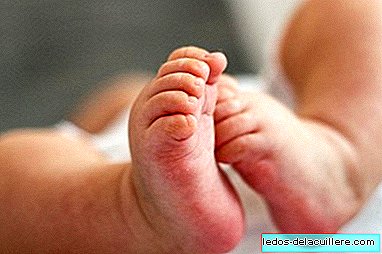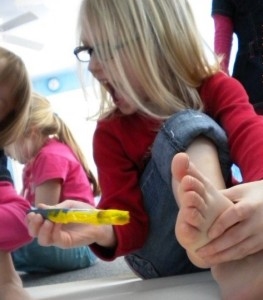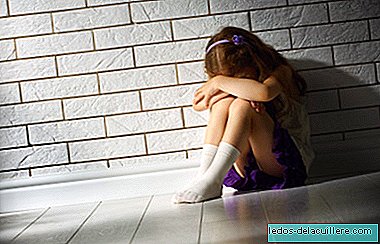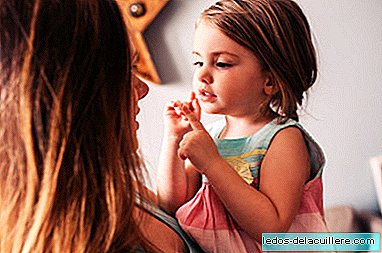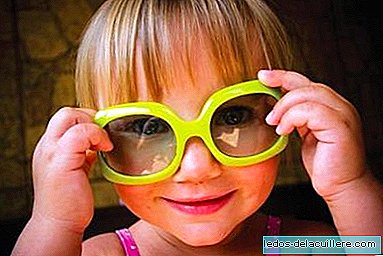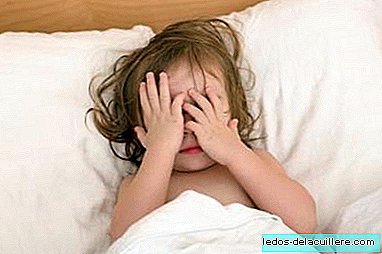
There are children who when they have a couple of years sleep at a stretch and others who are still waking up several times at night with five years. Each little one will have their own habits but all children, one night or another, can sleep altered.
When alterations such as waking up due to nightmares or peeing, moving a lot or grinding your teeth ... are repeated, it can affect the child's health and rest of the whole family. Therefore, here are some tips for a peaceful sleep of the child.
But before we remember that sleep needs vary according to age and that nighttime awakenings are physiological and appear in 20-40% of children under three years. These figures are decreasing with age, reaching 2% of five-year-olds, according to data from the "Clinical Practice Guide on Childhood Sleep Disorders."
Try to maintain adequate sleep hygiene with the child. It is important that the time before going to bed be relaxed and quiet. So, nothing about scary stories, moved games or television. Before sleeping the screens alter us all, also children (and also, their vision is more fragile and may be impaired).
What does help to relax are pleasant baths, children's stories, a small massage, talk about what happened during the day ...

Out nightmares
Scary stories can lead to nightmares, before which the child must be reassured. Note that it has been a dream, that it does not exist in reality. That we all have bad dreams from time to time, but that they are not real. Some "Tricks" for the child to go back to sleep after a nightmare they are reassuring him with a doll that transmits security or staying us to sleep by his side, leave a little light for a little while ...
The next day, if the child remembers what has happened, we must encourage him to verbalize the nightmare, even to draw it if he is willing, and we can “complete” the narration or drawing with some element that changes the nightmare and "finish well."
If children's nightmares are repeated, we can turn to stories about fears (darkness, monsters ...), always consulting them before, because each case is different and any story will not suit our child.
If the child suffers stress, a traumatic episode has occurred (separation of the parents, death of a close relative ...), there may be more nightmares, so it is important to discuss these issues, talk with the child so that his pain is not saved and fears Ultimately, if the child's health is affected, consult a doctor or psychologist.
Definitely, it's about the child feeling safe, that overcomes discomfort or fear with our support.
Pee at night
Remember that peeing at night is normal for a long time. If the child is wearing a diaper during the first years, he will not wake up when he urinates and therefore his sleep will not be altered, which is what we are talking about. Bedwetting is a disorder that should be taken into account after five years.
Around that age (if it has not happened before) the enuresis disappears spontaneously, but there are cases in which it occurs too late or does not remit without treatment, and can create a negative emotional impact on the child and family.
Therefore, when they grow and the pee becomes a factor that wakes them up, which bothers the child, we must consider whether the child has enough maturational development to wake up and get up when he wants to urinate. We can help you reduce those awakenings limiting the intake of liquids late in the afternoon and making the small pee before going to bed. If it continues, it is advisable to consult the pediatrician.

Stressed children, various consequences
Childhood stress or anxiety can have other consequences. like insomnia, bruxism (grinding of teeth during sleep), terrors, restless legs syndromes ... But a child who has trouble sleeping, in principle, does not have a disorder. There have to be many characteristics to talk about sleep disorders.
Here we talk about small sleep disorders, which are the most frequent in our sons and daughters. When there are real disorders (although it is not always easy to discern), such as sleepwalking, night terrors ... another type of intervention is necessary. We refer you to this topic that we recently talked about.
What is clear is that some habits can produce a hyper-alert state, such as routine consumption and before bedtime of chocolate, cola, the realization of intense mental, physical or emotional activities, the use of technologies such as the computer, video games or mobile phones… Let's try to make the environment and the conditions for going to bed the right ones.
When sporadically the child has difficulties in falling asleep, they should reflect on what happened that day in case we find a cause and should not squeak or impose a punishment, or that associate going to bed with punishments.
In short, fragmented and unstable nighttime sleep caused by various causes that delay or interrupt sleep will make children sleep less, make it difficult to wake them up in the morning when they have to go to school, have daytime sleepiness, have problems school children and, in short, that their quality of life is affected.
A good dream is important. The dream has a restorative function, promotes energy production and protein synthesis, increases the release of human growth hormone, reduces the response to stress, promotes cell regeneration and is important in certain mental processes, such as attention, memory, learning ...
Do not lose your temper if the child wakes up or does not want to go to bed because it is difficult for him to sleep, since our tranquility is fundamental to his. In this sense, it is good for the couple to take turns when accompanying children with difficulties in sleep, go to midnight ...
It is important that our children sleep peacefully, and it is possible to help children who sleep altered with these tips. We are probably getting closer to enjoying the necessary and restful sleep.
Photos | Thinkstock
In Babies and more | Sleep disorders in children, when to worry ?, What is nocturnal enuresis ?, What does my child have, a sleep problem or a disorder?



